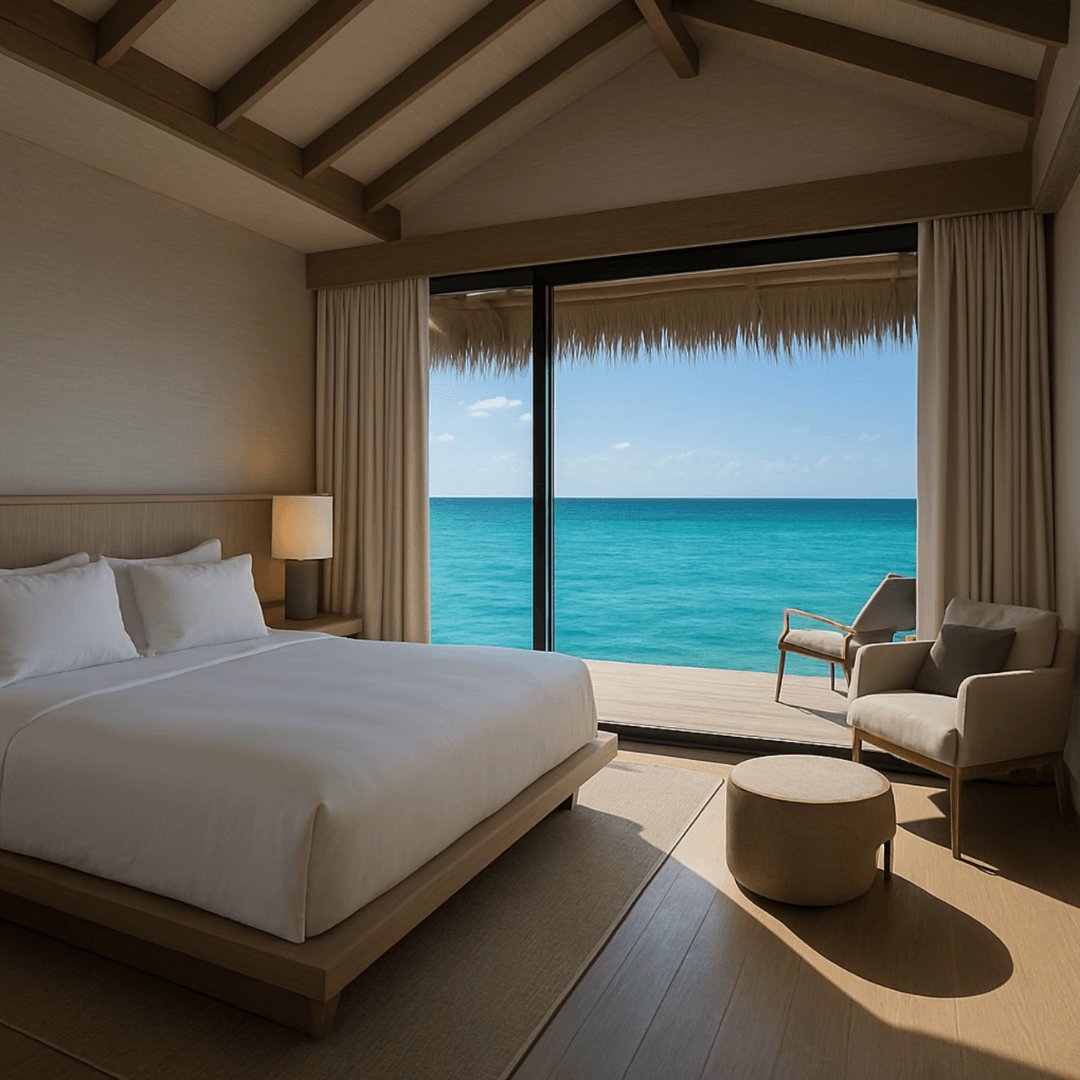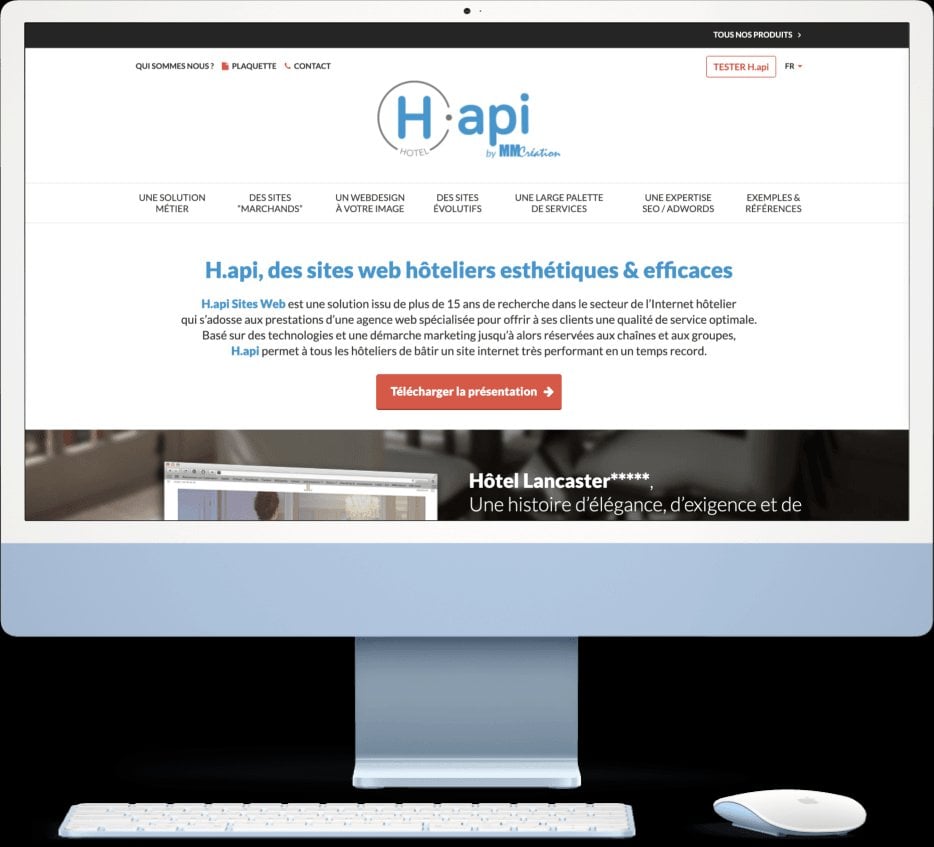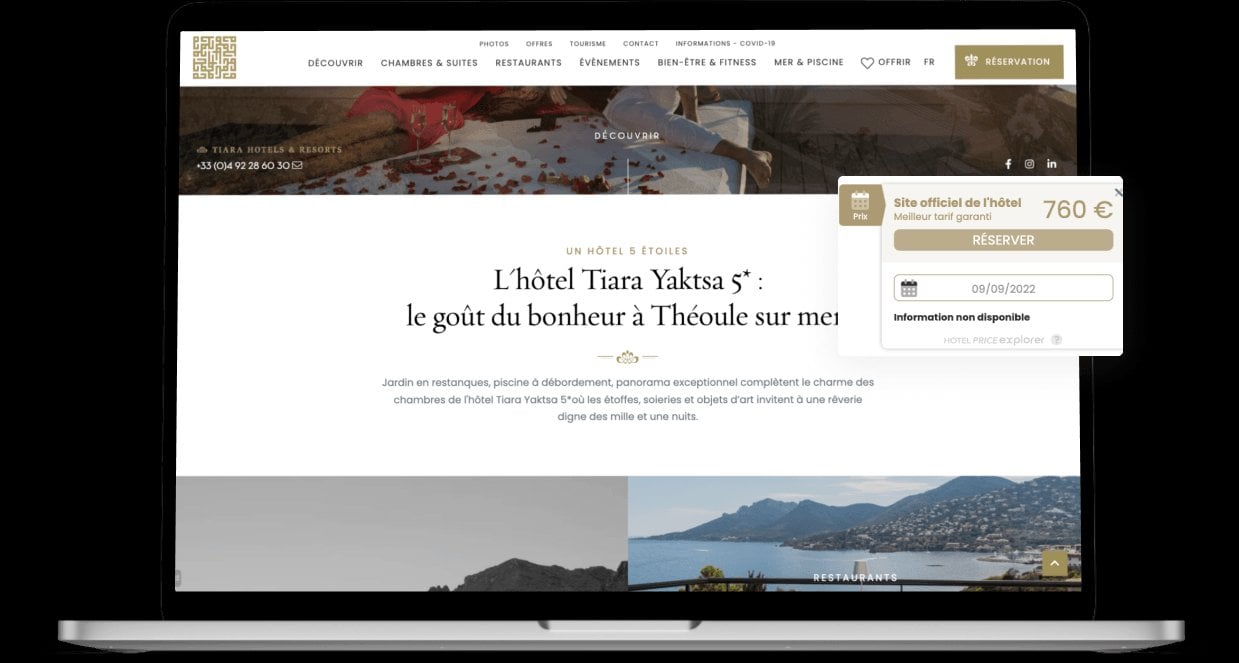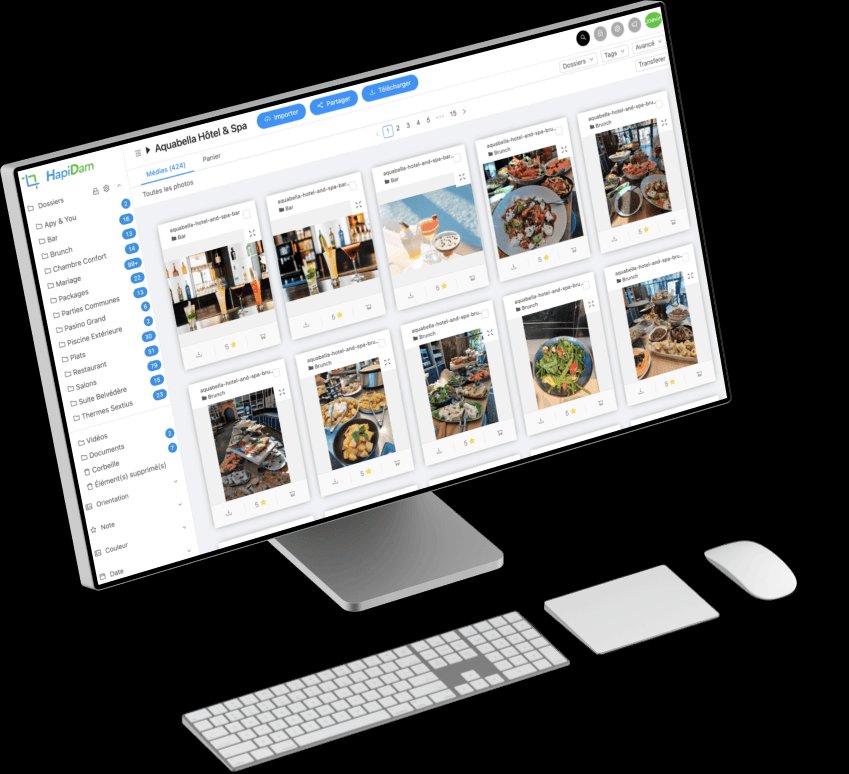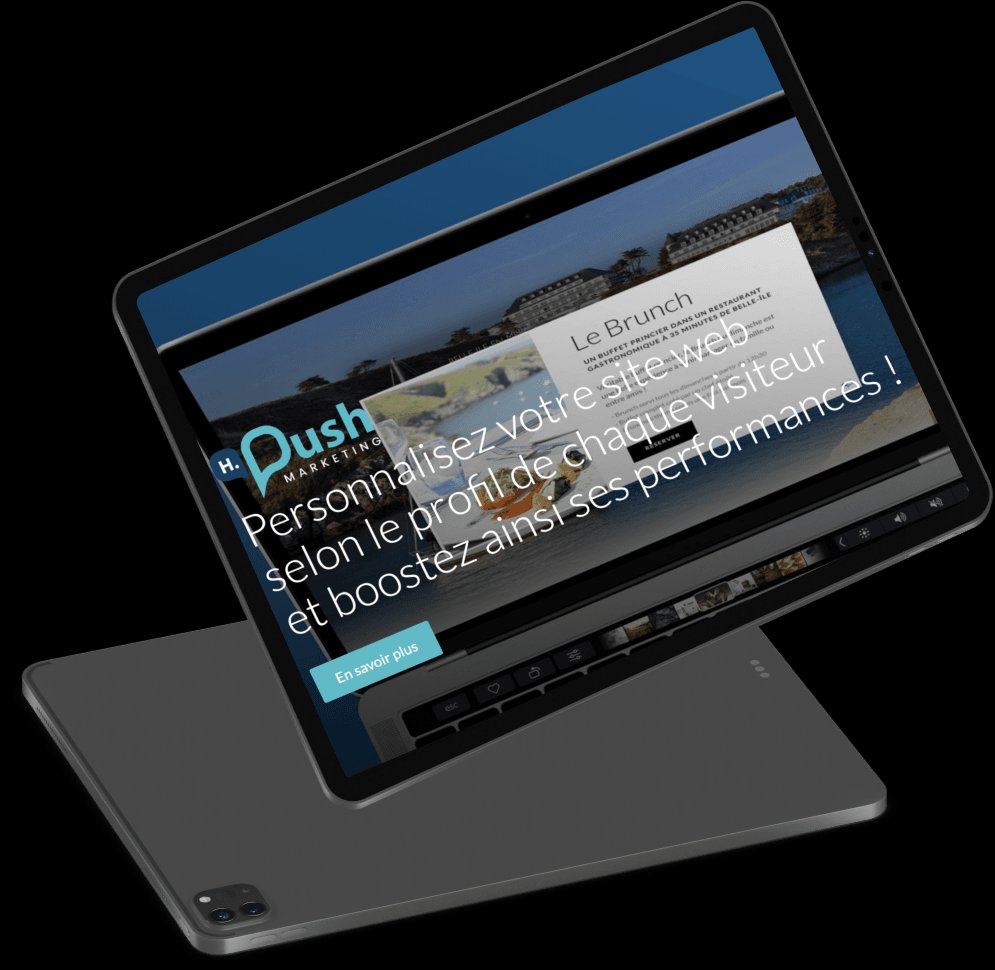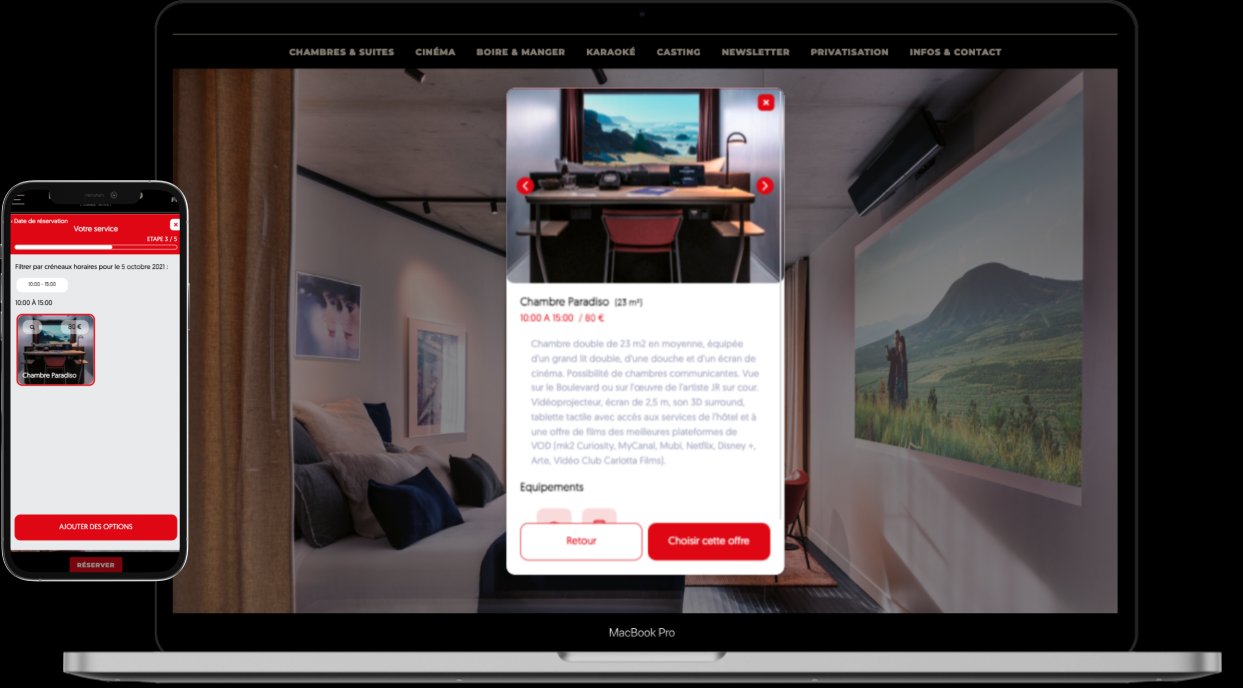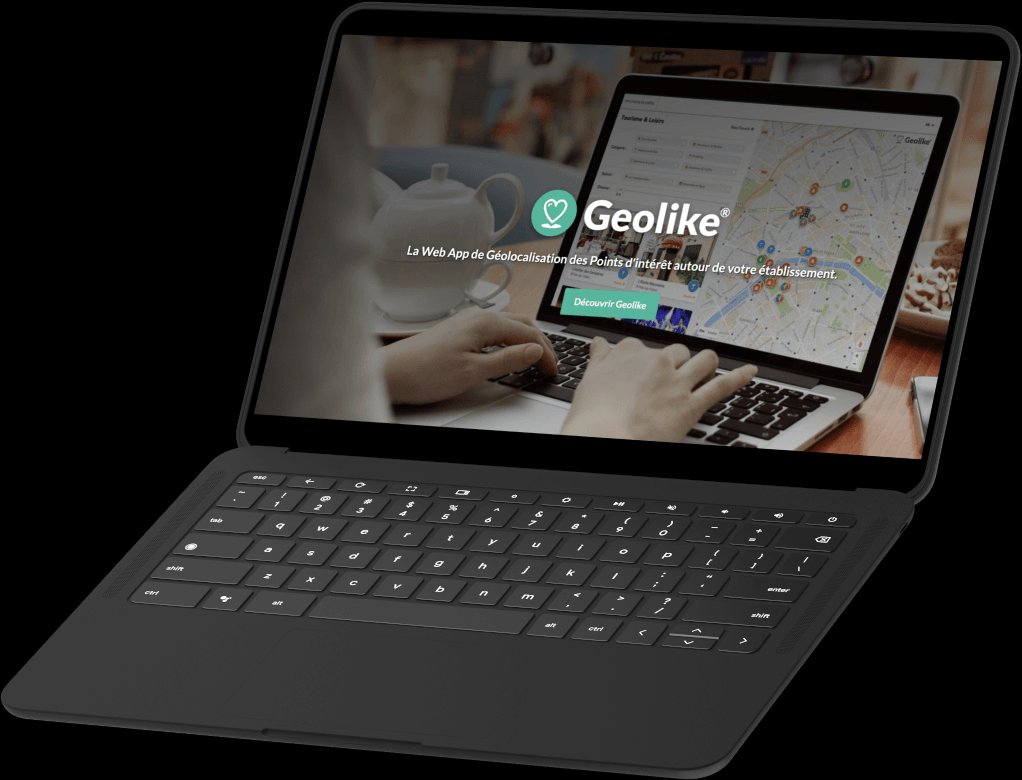Agence MMCréation • Technologie, évolution et conseil
The essential elements of a hotel website
The essential elements of a hotel website
Introduction
In a sector as competitive as the hotel industry, having a high-performance website is no longer an option - it's a necessity. The Internet is often the first point of contact between a future customer and your establishment. A well-designed, informative and attractive website can make the difference between a visitor making a reservation and one going to a competitor's site. So what are the key elements of a hotel website? Let's find out together.
1. A professional, consistent design
- Visual identity: Your site should reflect the atmosphere and positioning of your hotel (luxury, friendly, family-friendly, ecological, etc.). The colours, typography and images must be consistent with your brand image.
- Clear visual hierarchy: highlight the essential elements (booking button, room descriptions, contact). Use breathing space (empty spaces) to make it easier to read.
2. Clear and complete information
- Presentation of the hotel: Location, history, special features, values... It's essential to give visitors a clear idea of the experience you offer.
- Room descriptions: Clearly indicate the features of each room (size, beds, equipment, view, etc.) and add quality photos.
- Rates and offers: Be transparent about prices and offer special deals (packs, seasonal discounts, etc.) to encourage booking.
- Services & facilities: Mention all the services (breakfast, spa, gym, parking, airport shuttle, etc.) to reassure visitors about the added value of your establishment.
3. An efficient booking engine
- Visibility of the booking button: Place it strategically, ideally at the top of the home page and in a contrasting colour.
- Simplified booking process: The fewer steps involved, the higher the conversion rate.
- Security and trust: Use an SSL certificate and trusted logos (Visa, Mastercard, PayPal, etc.) to reassure you that the payment is secure.
4. Intuitive navigation
- Clear menu: Organise your menu into logical categories (Rooms, Services, Offers, Location, Contact, etc.).
- Relevant call-to-actions (CTAs ): Direct visitors to make a reservation or request information.
- Optimised loading time: A slow site discourages visitors. Compress your images, use quality hosting and minimise unnecessary scripts.
5. Quality visuals
- Professional photographs: Call on a specialist photographer to showcase your establishment.
- Videos or virtual tours: If possible, offer a virtual tour to help customers get a better idea of the hotel's ambience.
Conclusion
A successful hotel website is based on good design, fluid navigation and clear information. Don't forget that the main objective of your site is to convert your visitors into customers. To achieve this, focuses on user experience and ease of booking. By investing in these essential elements, you'll maximise your chances of turning an ordinary web surfer into a conquered guest.
